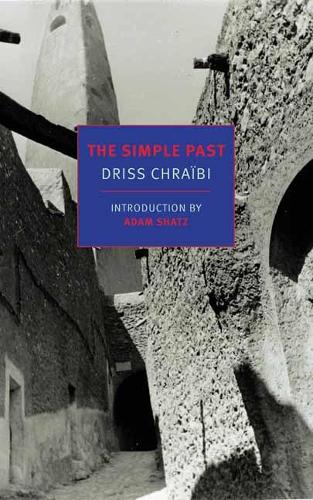
The Simple Past
(Paperback)
Publishing Details
The Simple Past
By (Author) Driss Chraibi
By (author) Hugh A. Harter
New York Review Books
New York Review Books
7th January 2020
7th January 2020
United States
Classifications
General
Fiction
843.914
Physical Properties
Paperback
172
Width 127mm, Height 203mm
Description
The Simple Past came out in 1954, and both in France and its author's native Morocco the book caused an explosion of fury The protagonist, also known as Driss, comes from a Moroccan family of means, his father a self-made tea merchant, the most devout of Muslims, quick to be provoked and ready to lash out verbally or physically, continually bent on subduing his timid wife and many children to his iron and ever-righteous will. He is known, simply, as the Lord, and Driss, who is in high school, is in full revolt against both him and the French colonial authorities, for whom, as much as for his father, he is no one. Driss Chraibi's classic coming-of-age story is about colonialism, Islam, the subjection of women, and trying against the odds to find a voice of your own, to fight free.
Reviews
Driss Chrabis first novel, The Simple Past, was as important to Maghrebi writers as Camuss The Stranger. It is a book that speaks with force, precision, and truth, reaching beyond the borders of Morocco to attain a universal significance. It stands in rebellion against backward traditions, against social and religious conformity, and against the father, their symbol. It is in rebellion against the French language, in which Driss would always write and which he superbly enriched. Tahar Ben Jelloun
A book of unforgettable intensity, sharpness, and ferocious critical intelligence, The Simple Past mingles French and Arabic and possesses an incantatory lyricism and a rhythm that are all its own. The music of storytelling is matched with a physicality and a nervous energy of expression that cries out with both sorrow and laughter. Pierre Assouline
One of the most distinguished writers of his generation. Mustapha Hamil, Review of Middle East Studies
Author Bio
Driss Chraibi (1926-2007) was born in Mazagan (now el-Jadida), Morocco. He attended Koranic school and then studied at the French lycee after his family moved to Casablanca. When Chraibi was nineteen, he moved to Paris to study chemical engineering and neuropsychiatry, but stopped his studies just before receiving his doctorate. He then worked odd jobs while traveling throughout Europe and Israel, before settling in France with his first wife, Catherine Birckel, and their children. Chraibi began writing for the National Radio and Television Broadcasting System, and in 1954 published his first novel, The Simple Life. He taught literature at the University of Laval-Quebec in Canada for a year before returning to France in 1971, where he remained for the rest of his life. He wrote several other works, including Les Boucs (The Butts), L' ne (The Donkey), and La Foule (The Crowd). He died in the village of Crest, where he had lived for many years, and was buried in the Cimeti re des Chouhada in Casablanca. Adam Shatz is a contributing editor at the London Review of Books and a contributing writer to The New York Times Magazine, The New York Review of Books, and The New Yorker, among other publications. He was a visiting professor at New York University and a fellow at the Dorothy and Lewis B. Cullman Center for Writers and Scholars. Shatz lives in New York City. Hugh A. Harter (1922-2011) was a writer, translator of French and Spanish literature, and professor at Ohio Wesleyan University, where he taught from 1966 to 1984.
